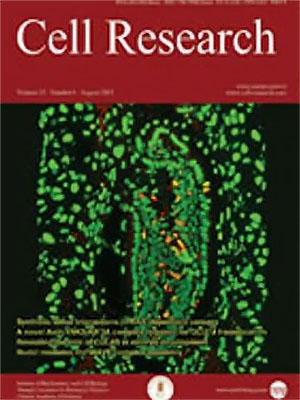
Volume 12, No 5-6, Dec 2002
ISSN: 1001-0602
EISSN: 1748-7838 2018
impact factor 17.848*
(Clarivate Analytics, 2019)
Volume 12 Issue 5-6, December 2002: 321-329
REVIEWS
Stem cell pluripotency and transcription factor Oct4
Guang Jin PAN1, Zeng Yi CHANG1, Hans R. SCHÖLER2, Duanqing PEI1,3 *
1Departments of Pharmacology and Biological Sciences & Biotechnology, Schools of Sciences and Medicine, Tsinghua University, Beijing 100084, China
2Center for Animal Transgenesis and Germ Cell Research, School of Veterinary Medicine, Department of Animal Biology, University of Pennsylvania, New Bolton Center, 382 West Street Road, Kennett Square, PA 19348, USA,
3Department of Pharmacology, University of Minnesota, Minneapolis, MN 55455, USA
Correspondence: Duanqing PEI(Duanqing@aol.com)
Mammalian cell totipotency is a subject that has fascinated scientists for generations. A long lasting question whether some of the somatic cells retains totipotency was answered by the cloning of Dolly at the end of the 20th century. The dawn of the 21st has brought forward great expectations in harnessing the power of totipotentcy in medicine. Through stem cell biology, it is possible to generate any parts of the human body by stem cell engineering. Considerable resources will be devoted to harness the untapped potentials of stem cells in the foreseeable future which may transform medicine as we know today. At the molecular level, totipotency has been linked to a singular transcription factor and its expression appears to define whether a cell should be totipotent. Named Oct4, it can activate or repress the expression of various genes. Curiously, very little is known about Oct4 beyond its ability to regulate gene expression. The mechanism by which Oct4 specifies totipotency remains entirely unresolved. In this review, we summarize the structure and function of Oct4 and address issues related to Oct4 function in maintaining totipotency or pluripotency of embryonic stem cells.
FULL TEXT | PDF
Browse 2339


